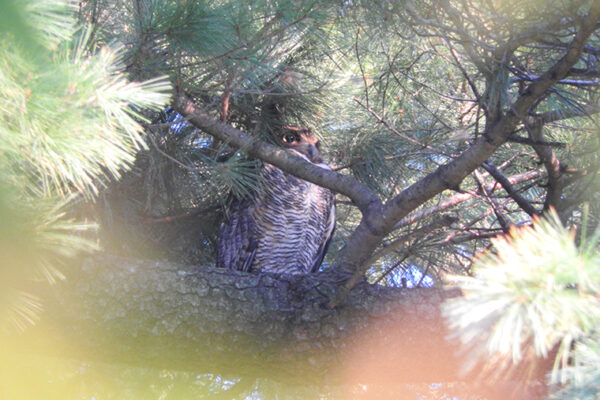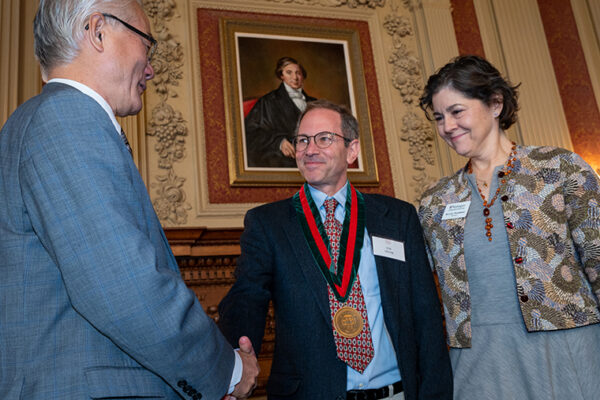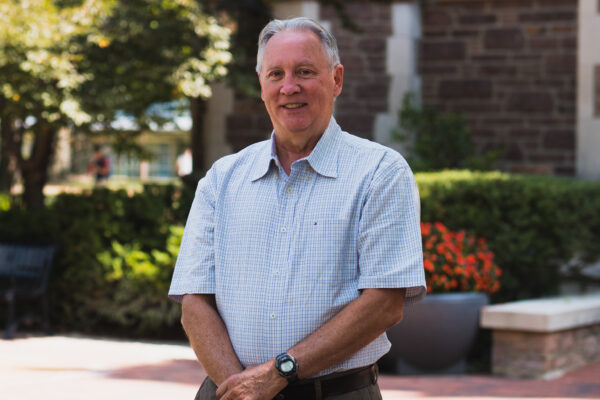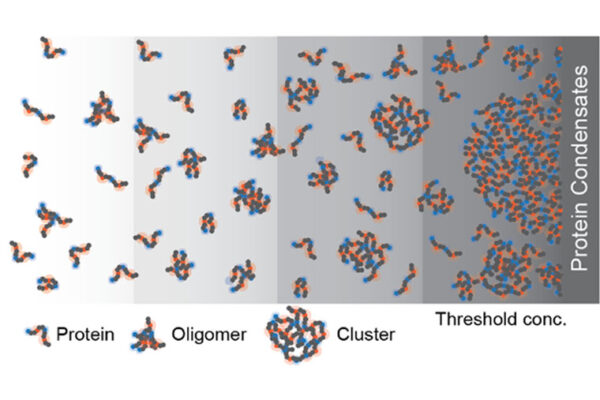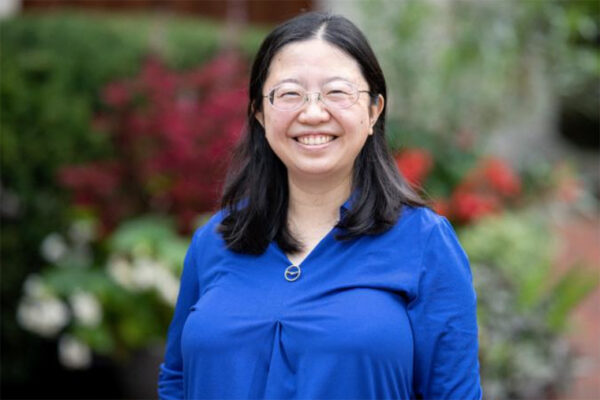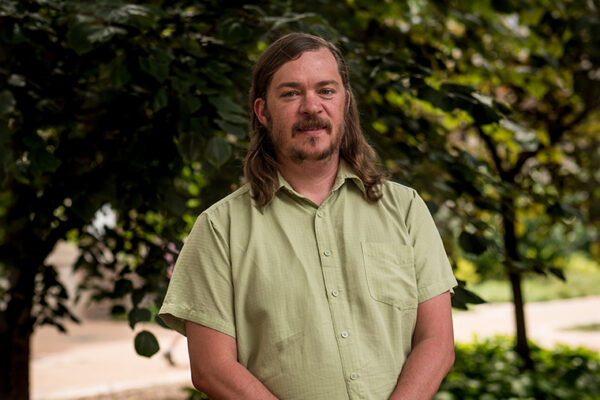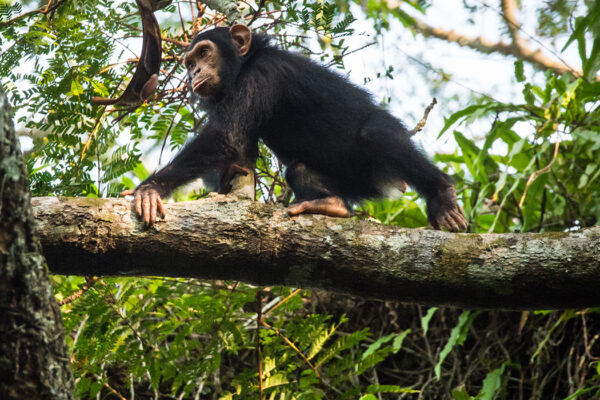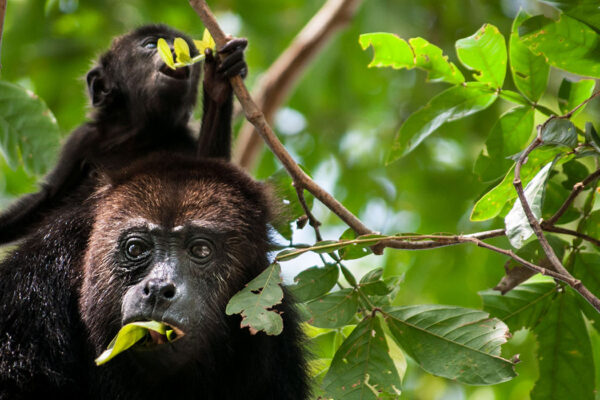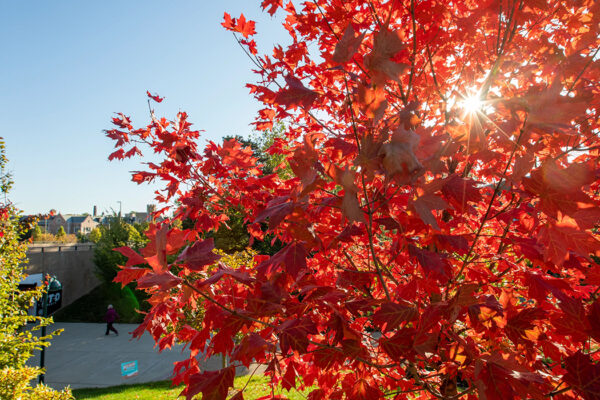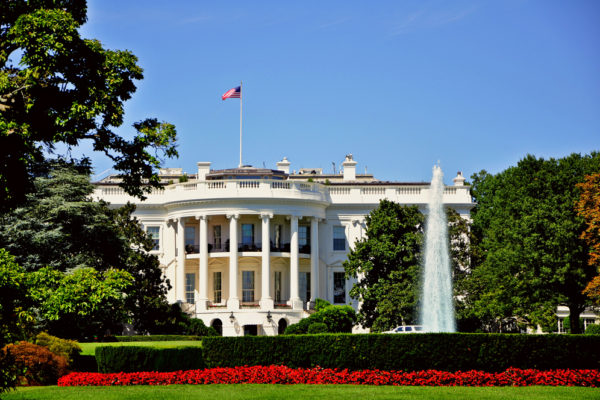Forest Park Living Lab
Combining experts in wildlife ecology, animal movement and veterinary medicine, the new Forest Park Living Lab examines wildlife health, behavior and interactions in the mosaic of ecosystems in Forest Park. The project received a Living Earth Collaborative seed grant in 2020.
Herzog installed as Viktor Hamburger Distinguished Professor
Erik Herzog, a professor of biology, was installed as the Viktor Hamburger Distinguished Professor in Arts & Sciences. His talk was titled “For Whom the Bells Toll: Networked Circadian Clocks and Clock Watchers.”
Kranz laboratory biologists report structure of heme transporter
In Nature Communications, researchers in the laboratory of Robert Kranz, professor of biology in Arts & Sciences, shared a new cryo-EM structure and proposed some common mechanisms of heme trafficking in the cell.
Center for Biomolecular Condensates launches
A new multidisciplinary center focused on biomolecular condensates — distinct molecular communities that make up the building blocks of life — has launched at the McKelvey School of Engineering.
Wang to investigate mechanisms of microtubule formation
Jennifer Wang, an assistant professor of biology in Arts & Sciences, won a $1.2 million grant from the National Institutes of Health (NIH) for microtubule formation research.
Carlson to study neuroplasticity, behavioral evolution
Bruce Carlson, professor of biology in Arts & Sciences, recently won a $980,000 grant from the National Science Foundation to study neuronal plasticity and the evolvability of animal behavior.
Study reports first evidence of social relationships between chimpanzees, gorillas
Drawn from more than 20 years of observations at Nouabalé-Ndoki National Park in the Republic of Congo, a long-term study led by primatologist Crickette Sanz in Arts & Sciences documented social ties between individual chimpanzees and gorillas that persisted over years and across different contexts.
Hidden microbiome fortifies animals, plants too
Pioneering research at Washington University helped people understand the fundamental role of gut microbes in human health and disease. Now a community of local scientists is learning more about the diverse microbial systems that support animals, plants and ecosystems.
No, autumn leaves are not changing color later because of climate change
Biologist Susanne S. Renner in Arts & Sciences explains why trees might actually be starting to turn red and yellow earlier, not later. Brilliant fall color might become a casualty of a warming world.
Bose participates in White House summit on American bioeconomy
Arpita Bose, in Arts & Sciences, attended a White House summit on biotechnology, along with representatives from government and the private sector. In her research at Washington University, Bose harnesses the power of microbes to create new biofuels and bioplastics.
Older Stories
